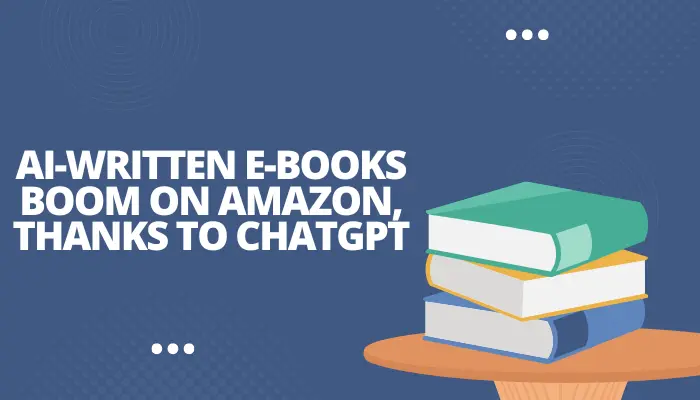Artificial Intelligence (AI) is revolutionizing the world, and its impact is felt across all sectors. One of the latest AI-driven trends in the market is the rise of AI-written e-books. These e-books are produced by AI algorithms that use natural language processing (NLP) techniques to create human-like content. Amazon has been at the forefront of this trend, offering AI-written e-books on its platform.
This article will explore the rise of AI-written e-books and their impact on the publishing industry.
AI-written E-books: The New Trend in Publishing
AI-written e-books have become increasingly popular in recent times, thanks to the advancements in AI technology. These e-books are created by algorithms that use NLP techniques to analyze large volumes of text and generate new content. The content generated by these algorithms is indistinguishable from human-written content, making it a viable alternative to traditional e-books.
Amazon has quickly recognized the potential of AI-written e-books and has started offering them on its platform. These e-books are priced competitively and cover various topics, making them accessible to a broad audience. The quality of the content is also impressive, with many readers unable to distinguish between AI-written and human-written e-books.
The Impact of AI-written E-books on the Publishing Industry
The rise of AI-written e-books is set to disrupt the publishing industry significantly. Publishers and authors must adapt to the changing landscape and find ways to compete with AI-written e-books. The low cost and high-quality content of AI-written e-books will make them popular with readers, putting pressure on traditional publishers to find new ways to differentiate themselves.
One potential solution is for publishers to collaborate with AI technology companies to produce hybrid e-books. These e-books would combine the best of both worlds, with AI algorithms generating the content and human editors providing the finishing touches. This approach would allow publishers to take advantage of AI’s cost and efficiency benefits while ensuring the content’s quality meets the high standards expected by readers.
Conclusion
The rise of AI-written e-books is a game-changer for the publishing industry. These e-books offer high-quality content at a low cost, making them an attractive alternative to traditional e-books. Amazon has recognized the potential of AI-written e-books and has started offering them on its platform. Publishers and authors must adapt to the changing landscape and find ways to compete with AI-written e-books. One potential solution is for publishers to collaborate with AI technology companies to produce hybrid e-books that combine the best of both worlds. This approach would allow publishers to take advantage of AI’s cost and efficiency benefits while ensuring the content’s quality meets the high standards expected by readers.









